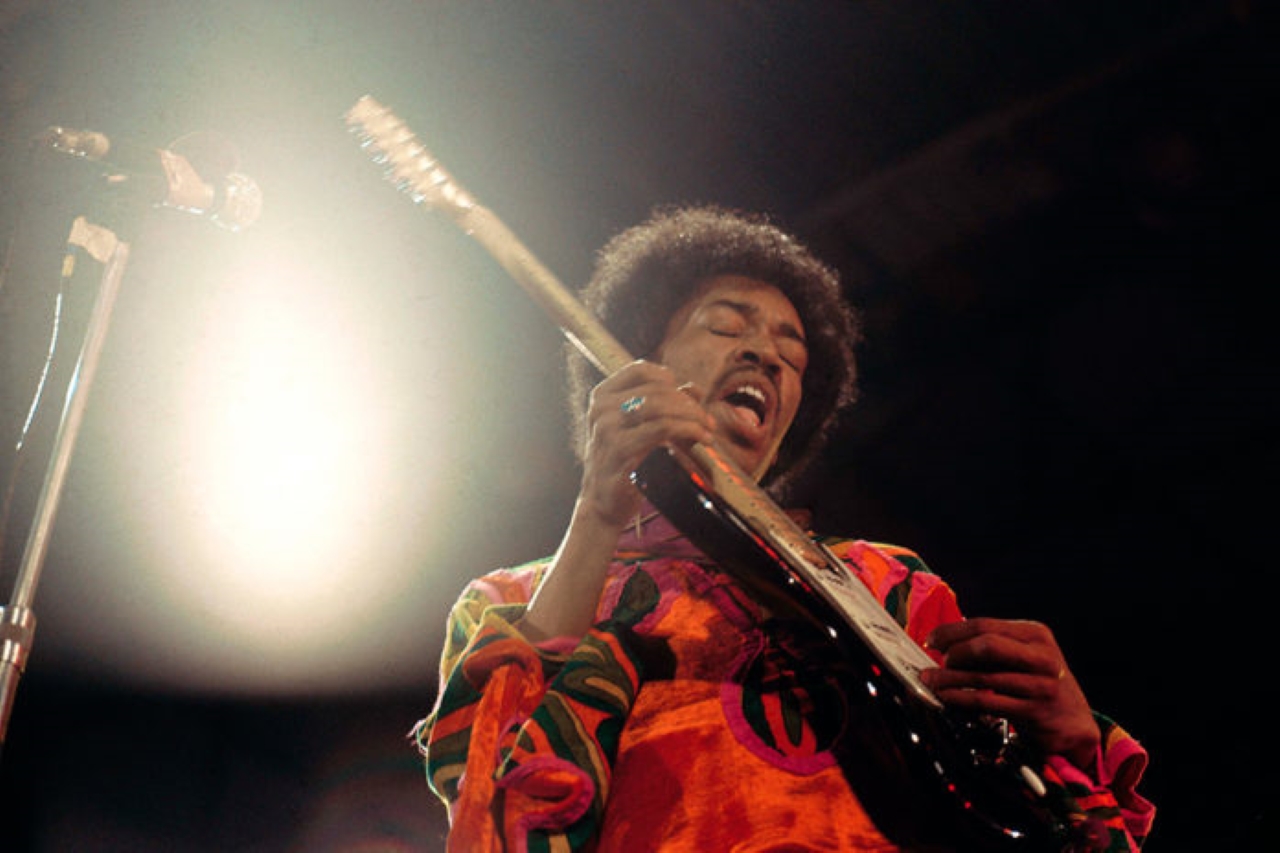🌌 After Woodstock – The Weight of a Legend
By the summer of 1970, Jimi Hendrix was both a hero and a prisoner of his own myth. A year earlier at Woodstock, he had reinvented the American national anthem into a guitar scream that shook the world. But fame had become suffocating. Constant touring, band changes, endless demands from record companies, and a body worn thin by exhaustion and pills all weighed on him.
Hendrix longed for freedom—freedom from expectation, freedom to simply play music without being a symbol of revolution. And yet, in August 1970, he agreed to headline the Isle of Wight Festival, the largest music gathering in Europe, with over 600,000 fans. No one knew it would be his last concert in England.

🎸 The Night of August 26, 1970
The stage lights lit up the island. Hendrix walked out in white, with a red scarf draped around his neck, the Stratocaster slung low. The roar of the crowd was deafening, a sea of people waiting to be set on fire.
Among the many songs he played that night—Foxy Lady, Red House, Voodoo Child (Slight Return)—one stood apart: “All Along the Watchtower.”
It wasn’t just another performance. It was Hendrix reclaiming the song that Dylan had written and he had made immortal. His version had already become a hit in 1968, but on this night, it carried something heavier: tension, fatigue, urgency, and a strange finality.
🌑 The Song as a Mirror
When Hendrix launched into All Along the Watchtower, his guitar sliced through the night like a warning siren. The opening chords were jagged, almost fragile, before erupting into fire. His voice, raspy and weary, sang of “thieves” and “jokers,” of chaos on the horizon.
It felt prophetic. The lyrics—“There must be some way out of here”—seemed to echo Hendrix’s own restlessness. He was the joker and the thief, trapped in the spectacle of fame, searching for a way out. Each solo burned with desperation, as if Hendrix was speaking not just to the audience, but to himself.
For many in the crowd, it was the highlight of the night. Amid technical troubles and uneven playing, All Along the Watchtower was the one song where everything aligned: Hendrix’s genius, Dylan’s poetry, and the haunting sense that time was running out.
💔 The Countdown Begins
Less than a month later, Hendrix was gone. On September 18, 1970, he died in London at just 27. The Isle of Wight performance of All Along the Watchtower thus became one of his final declarations on stage—a thunderous farewell to the country that had first embraced him when America had overlooked him.
What made the moment unforgettable was not perfection, but honesty. Hendrix was not hiding behind showmanship. He was weary, flawed, and human. But when he played All Along the Watchtower, the fire returned, if only for a few minutes.
🌟 The Legacy of a Farewell
The Isle of Wight concert remains controversial—too messy for some, too unpolished for others. But within that imperfect night lay a truth: Hendrix was not just a guitar god, but a man wrestling with his own legend.
And in All Along the Watchtower, he gave his final gift: a song about searching for escape, sung by an artist who would soon escape this world entirely.
On August 26, 1970, Jimi Hendrix didn’t just play his hit. He played his epitaph.